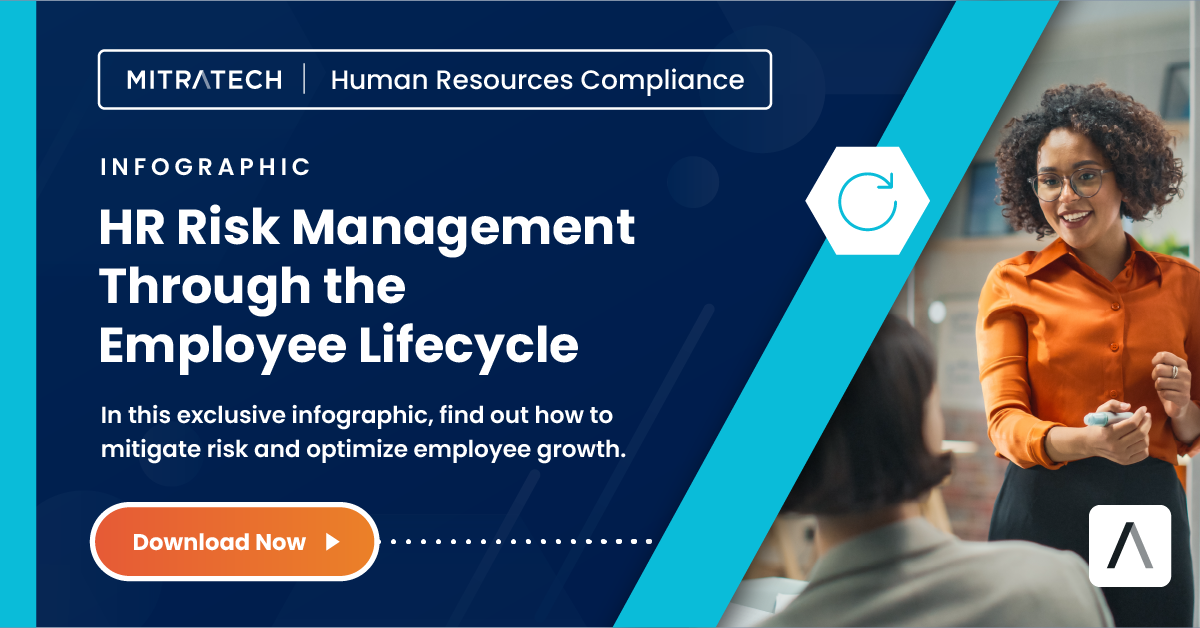For HR leaders, HR compliance can sometimes seem as complex as a Rubik’s cube. In this comprehensive guide, we will demystify HR compliance for you and provide valuable insights to help your business stay on the right side of the law.
Understanding HR compliance is crucial whether you’re a seasoned HR professional or just starting out in the field. It involves adhering to various laws and regulations that govern the employer-employee relationship. From anti-discrimination laws to data privacy requirements, there are numerous areas where employers must comply to avoid legal repercussions.
But don’t worry – it’s not all doom and gloom! There are parts of HR compliance that are fascinating as well as fun.
What is HR compliance?
HR compliance, simply put, refers to an organization’s adherence to laws and regulations related to human resources. It encompasses a wide range of areas such as labor laws, anti-discrimination statutes, data privacy requirements, and more. Ensuring HR compliance is crucial for businesses as it helps protect employees’ rights and prevents legal issues.
The importance of HR compliance cannot be overstated. By complying with applicable laws, employers create a fair and inclusive workplace environment where employees feel valued and respected. This not only boosts employee morale but also enhances productivity and reduces turnover rates.
There are various types of HR compliance that organizations need to consider. These include legal compliance (adhering to federal, state, or local employment laws), industry-specific compliance (meeting regulations specific to certain sectors), safety compliance (ensuring workplace safety standards are met), and data privacy compliance (protecting the confidentiality of sensitive employee information).
In order to maintain HR compliance within their organizations, employers must stay up-to-date with changes in legislation that affect their industry. They should regularly review policies and procedures to ensure they align with current legal requirements. Additionally, implementing effective record-keeping practices is essential for documenting important HR actions.
Types of Compliance in HR
When it comes to HR compliance, there are several key areas that employers need to be aware of. By understanding the different types of compliance, businesses can ensure they meet their legal obligations and protect their employees and their organization.
One important type of HR compliance is employment law compliance. This involves adhering to federal, state, and local laws regarding hiring practices, wages and hours, workplace safety, and more. Employers must stay up-to-date with these regulations to avoid costly penalties or lawsuits.
Another area of compliance is diversity and inclusion. Ensuring equal opportunities for all employees regardless of race, gender identity, age or disability is a moral duty and a legal requirement. Companies should have policies in place that promote diversity in recruitment processes and create an inclusive work environment.
Data privacy also falls under HR compliance. With the increasing reliance on technology in the workplace, organizations must protect employee data from unauthorized access or breaches. This means implementing safeguards such as secure networks, strong password protocols, and regular employee training on data protection best practices.
By recognizing these various types of HR compliance issues,
businesses can take proactive steps towards ensuring they remain compliant at all times.
Common compliance issues
Addressing these common HR compliance issues requires proactive efforts from employers.
Discrimination in the workplace
Discrimination in the workplace is a serious issue that can have far-reaching consequences for both employees and employers. It occurs when an individual is treated unfairly or differently based on certain protected characteristics such as race, gender, age, disability, religion, or national origin.
Discrimination can take many forms, including hiring bias, unequal pay or benefits, denial of promotions or training opportunities, harassment by supervisors or coworkers, and even termination based on discriminatory reasons. These actions not only violate federal laws but also create a toxic work environment that hampers productivity and employee morale.
To combat discrimination in the workplace effectively, employers must establish clear policies prohibiting discrimination and harassment. They should provide comprehensive anti-discrimination training to all employees to ensure awareness of their rights and responsibilities. Additionally, implementing a complaint procedure that allows employees to report incidents without fear of retaliation is crucial.
Employers should also conduct regular audits to identify any potential instances of discrimination and take prompt corrective action when necessary. By fostering a culture of diversity and inclusion within the organization from top to bottom, employers can mitigate the risk of discrimination claims while creating a more equitable working environment for everyone.
Security and data privacy
Security and data privacy are critical aspects of HR compliance that employers must prioritize. With the increasing reliance on technology in the workplace, protecting sensitive employee information has become more challenging yet essential.
One key concern regarding security and data privacy is the risk of unauthorized access to employee data. Employers must implement robust cybersecurity measures to safeguard personal and confidential information from potential breaches or cyberattacks. This includes employing strong passwords, encryption techniques, firewalls, and regular software updates to protect against evolving threats.
Additionally, organizations should establish strict access controls to ensure that only authorized personnel have permission to view or handle sensitive employee information. Regularly reviewing user access privileges can help prevent unauthorized individuals from accessing confidential data.
Documentation and record-keeping
Documentation and record-keeping are crucial in ensuring HR compliance within an organization. Accurate and organized documentation is essential for various reasons, including legal requirements, internal audits, and employee disputes.
Maintaining comprehensive records allows employers to prove that they have met their obligations under employment laws. This includes keeping track of important documents such as employment contracts, job descriptions, performance evaluations, disciplinary actions, and any other relevant paperwork.
Additionally, proper record-keeping helps protect the company in case of litigation or regulatory investigations. By having access to detailed records, organizations can demonstrate that they have followed established processes and procedures when making decisions related to hiring, promotions, terminations or any other employment-related matters.
To ensure accurate record-keeping practices:
- Implement a standardized system: Establish clear guidelines for documenting all HR-related activities consistently across the organization.
- Train employees: Provide training to managers and supervisors on the importance of proper documentation practices and how to maintain accurate records. Use a learning management system!
- Regularly review records: Conduct routine audits of HR files to ensure completeness and accuracy.
By prioritizing documentation and record-keeping as part of your HR compliance strategy, you can mitigate risks associated with legal non-compliance while promoting transparency within your organization.
Best practices for HR compliance
Best practices for HR compliance are crucial for any organization to ensure a smooth and legally compliant working environment. Here are some key strategies that employers can implement:
- Keeping track of compliance obligations: It is essential to stay informed about the laws and regulations that apply to your industry and location. Regularly review and update policies to align with legal requirements.
- Division of compliance responsibilities within the HR department: Assign specific individuals or teams within the HR department to oversee different aspects of compliance, such as equal employment opportunity, data privacy, and wage and hour regulations.
- Staying up-to-date with legal changes: Laws related to HR compliance are subject to frequent updates. Stay current by subscribing to industry newsletters, attending webinars or conferences, or consulting with legal professionals.
- Regularly auditing HR policies: Conduct periodic audits of your HR policies and procedures to identify potential gaps or areas for improvement in terms of compliance.
- Consistent application of policies: Ensure that all employees are aware of company policies and procedures through effective communication channels such as employee handbooks, training sessions, or online platforms.
- Utilizing HR technology: Implementing an automated system can streamline various processes related to compliance management, including record-keeping, reporting, and document retention.
- Creating an HR compliance checklist: Develop a comprehensive checklist outlining all relevant legal requirements applicable within your organization’s jurisdiction. This tool will help you track ongoing adherence efforts effectively.
By adopting these best practices consistently throughout your organization’s operations, you can mitigate risks associated with non-compliance while promoting fairness, transparency, and accountability among employees. Remember, achieving full adherence requires continuous effort, but it will ultimately contribute to creating a healthy work culture.
Ensuring HR compliance: FAQs Answered
How do we ensure HR compliance?
HR compliance is a critical aspect of running a successful business. To ensure HR compliance, employers must first understand the laws and regulations that apply to their industry and location. This includes familiarizing themselves with key legislation such as Title VII of the Civil Rights Act, the Fair Labor Standards Act (FLSA), and the Americans with Disabilities Act (ADA). Establishing clear policies and procedures that align with these laws is also essential.
Why is HR compliance important?
HR compliance ensures fairness, equality, and legal protection for both employees and employers. By adhering to HR regulations, businesses can avoid costly lawsuits, reputational damage, or fines from government agencies. Additionally, maintaining HR compliance fosters a positive work environment where employees feel valued and respected.
What does an HR compliance specialist do?
An HR compliance specialist plays a vital role in helping organizations stay compliant with various employment laws. They are responsible for conducting audits to assess policy adherence, providing guidance on complex legal matters related to human resources practices, updating company policies in line with changing regulations, training employees on best practices regarding discrimination prevention or safety protocols.
What are HR compliance reports?
HR compliance reports offer valuable insights into an organization’s adherence to employment laws. These reports typically include data on employee demographics, hiring processes, performance evaluations conducted by managers or supervisors within specific timeframes mandated by law (such as annual reviews), and harassment claims filed against individuals within the workplace – among other relevant metrics.
Ready to Reduce Your Risk?
Are you tired of struggling to manage your human resources compliance processes? Look no further! Mitratech offers a suite of cutting-edge HR compliance software solutions designed to streamline and simplify your HR operations.
Take the first step towards transforming the way you handle compliance with our industry-leading tools. Sign up for a demo today and witness firsthand how Mitratech’s software can revolutionize your HR processes.
Don’t miss out on this opportunity to optimize efficiency, minimize risk, and ensure compliance. Join the ranks of satisfied customers who have already experienced the power of Mitratech’s HR compliance software. Start your journey towards HR excellence now!
¿Nuestra prioridad? En su éxito.
Programe una demostración u obtenga más información sobre los productos, servicios y compromiso de Mitratech.



